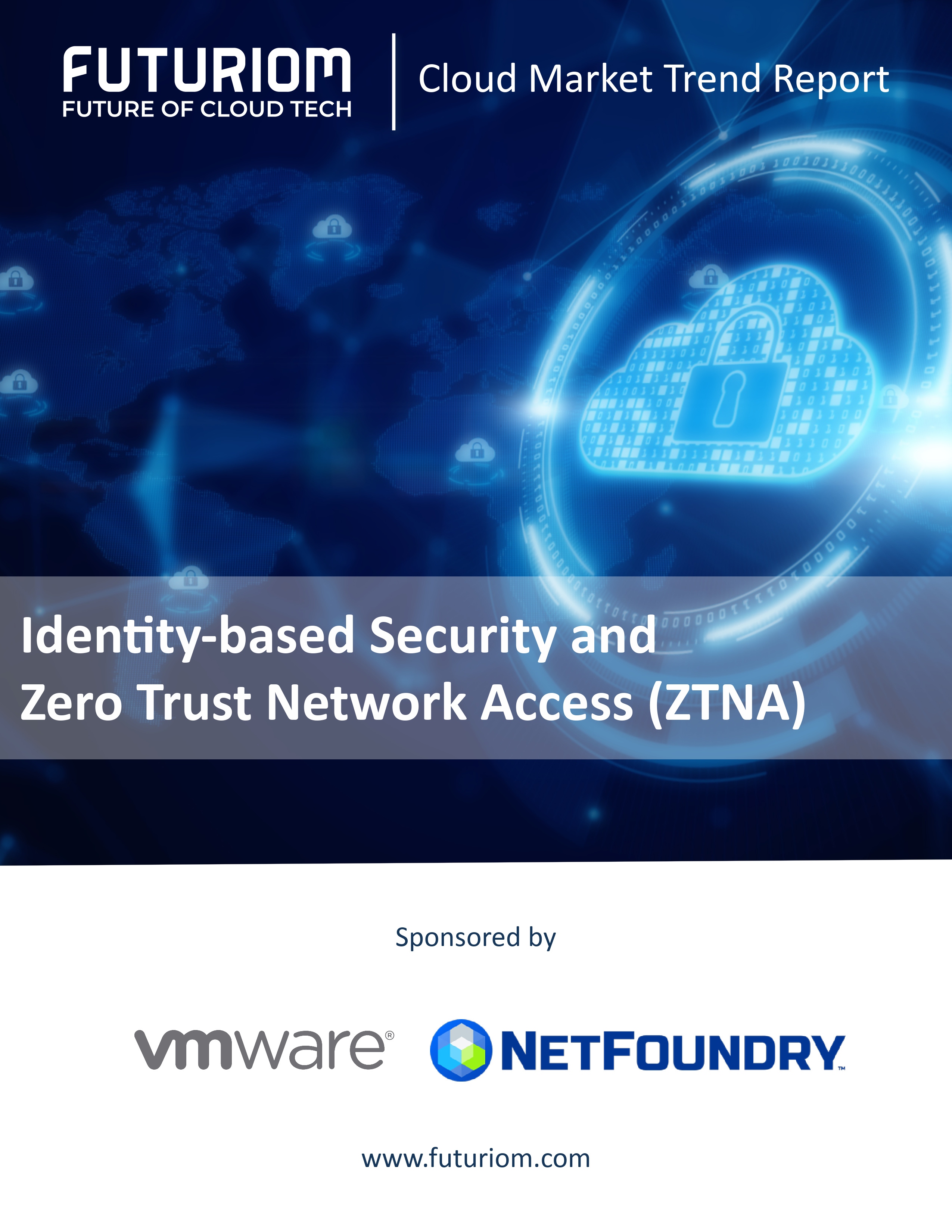Futuriom Identity based Security and Zero Trust Network Access ZTNA
Download the Free Report

Highlights
• There is an increase in demand for cybersecurity products to enable identity-based security for providing Zero Trust Network Access (ZTNA). These are products that secure authentication to networks and cloud services, including identity-based security solutions.
• The Zero Trust security model (trusting no one) has evolved as the best practice for securing networking and computing in today’s hybrid environments. The approach is also gaining traction as a response to the rise in the ransomware threat.
• The increase in demand is being driven by expanded use cases for ZTNA and identity-based security for networks and cloud services. Some of the factors include:
1) Increased remote work and the need for virtual network connectivity; 2) An expansion of the enterprise security perimeters, created by the increase in access points and scale of the Internet (4 billion active users in 2020); and 3) Increased use of cloud-based products and applications.
• In the wake of the COVID-19 pandemic, there is strong demand for virtual private network (VPN) augmentation or replacement, which has become the biggest driver for ZTNA deployments.
• Enterprises are finding the need to increase levels of sophistication to control networks and security perimeters. Weakened or nonexistent perimeter protections pose extreme threats to enterprise security.
• The addressable market for ZTNA products and services is over $10 billion.
This number would cover a portion of the VPN market, but the upside is much higher.
• ZTNA products are being integrated into packages of broader Secure Access Service Edge (SASE) security solutions. An integrated, cloud-based security suite is the ultimate end goal for many end users, which aligns with a comprehensive zero-trust architecture.
